Open Mic House to be transformed by development
Owners plan to revive storied Halifax arts destination
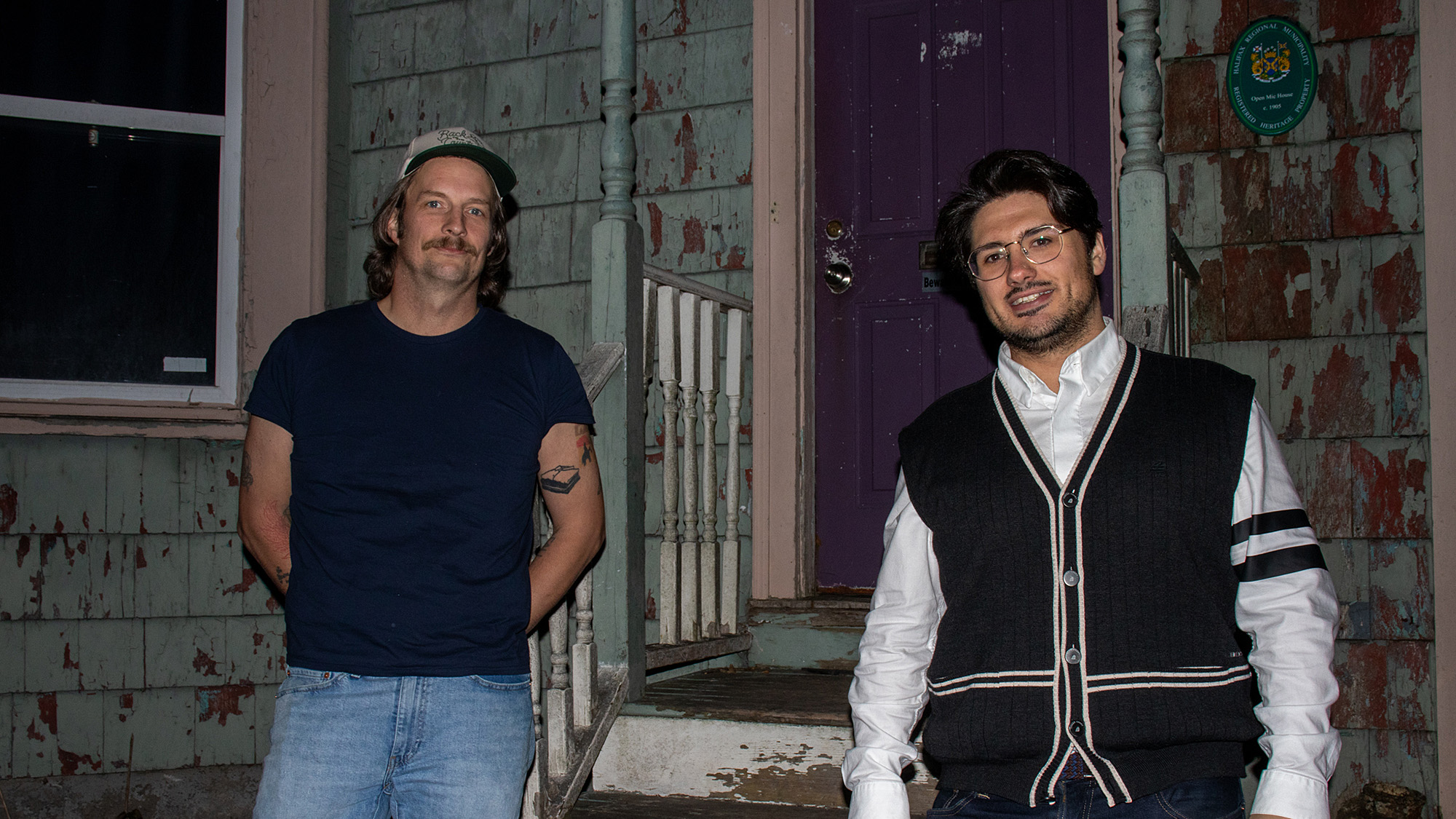
caption
Dave Fultz, left, former tenant of the Open Mic House, and Grant Ruffinengo, son of landowner Bruno Ruffinengo, are collaborating on the performance venue's revival.Dave Fultz never thought he’d be working with his former landlord’s son to turn a house on Agricola Street into an arts not-for-profit, especially not a heritage house with a proposed eight-storey apartment building attached to the back.
For nine years Fultz lived in the ‘Open Mic House’, a peculiar product of the Halifax arts scene. In the late 2000s the house, at 2539 Agricola St., was home to a rotating roster of the city’s musicians, who hosted a weekly open mic night on Mondays.
Through word of mouth, it grew to be an artistic haven.
“It was just a bunch of people sitting around the living room … it turned into much bigger things out of our control,” said Fultz.
Eventually, open mic night attendance reached hundreds. Fultz says guests visited from Europe, South America, and Australia, and while tenants came and went, there was always a new musician moving in, and the open mics continued.
The house is owned by Bruno Ruffinengo, who moved his family from Italy to Halifax in the late 1990s. Ruffinengo also bought his brother’s business, Carlo Auto Service, located in the lot directly beside the house.
Bruno’s son, Grant Ruffinengo, 29, was too young to participate at open mics, but remembers his dad coming home from work and telling him stories about how people were packed like sardines into the house to hear local music. His dad, he said, wasn’t concerned about the gatherings — as long as the rent was paid.
In 2015, the Open Mic House was voted Best Open Mic Night as part of The Coast’s Best of Halifax competition.
“I remember my dad coming home with that copy of The Coast and being like ‘Look what they did in my living room’,” said Ruffinengo.

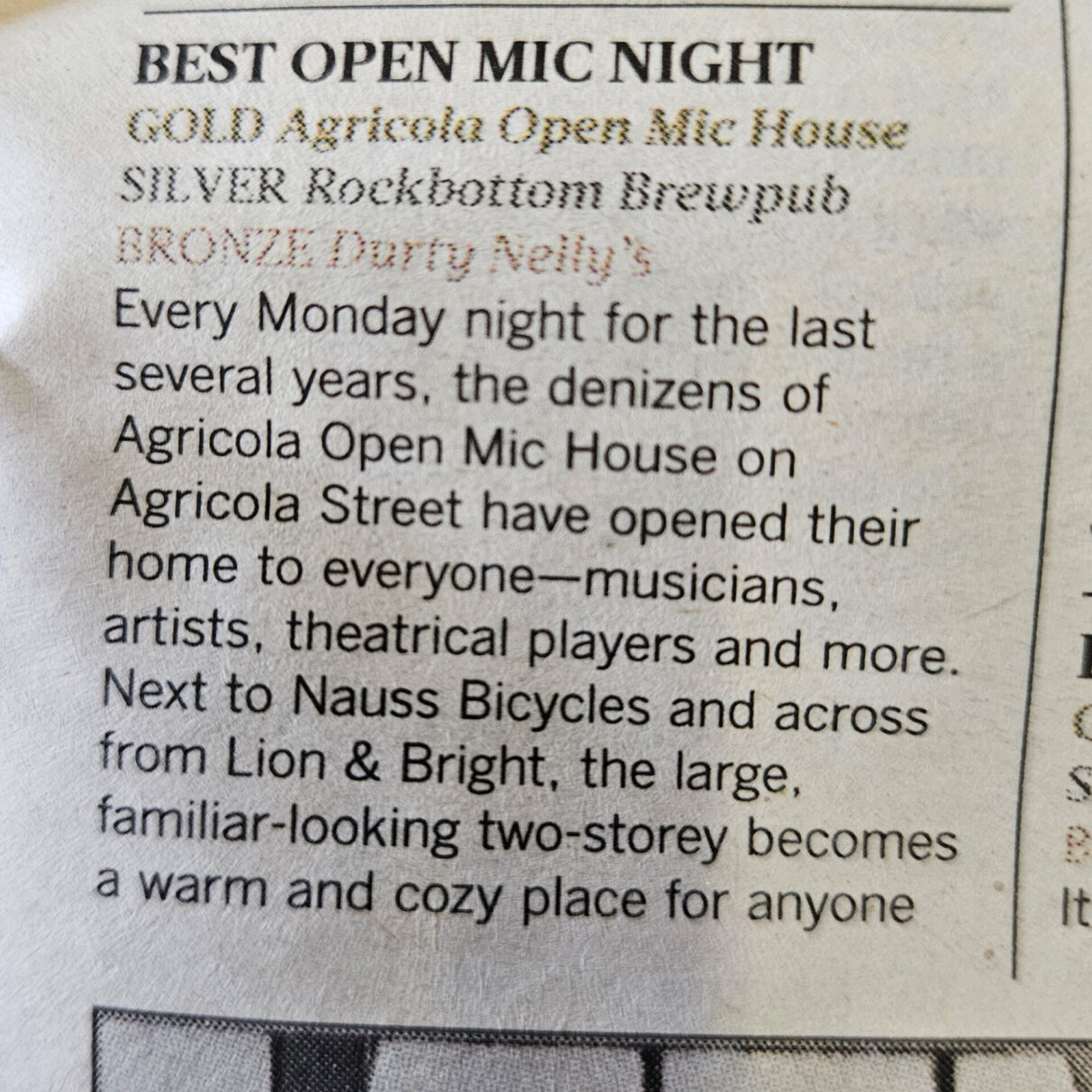
As the house gained fame, issues bubbled to the surface. Fultz said that in welcoming everybody, his living space became an “open house” and it was more than he could handle.
“It was hard to maintain that kind of open door policy because we weren’t, for one, social workers, we weren’t trained in mental health help or any of these kind of things, but a lot of times people would come with those needs and we just tried to be a welcoming space … but it takes a toll on you as well,” said Fultz.
There were noise complaints, a land-use conflict with the city, and one summer where a subletter tore up the bathroom. Fultz decided it was the end for him and moved out. The open mics continued, but as tenants and bands changed, privacy was prioritized, and the traditional weekly open mic event fizzled out.
Bruno Ruffinengo is now 63, and hopes to retire. His original plan to pass the family auto business on to his son Grant, has changed: the two considered selling the land to developers, but instead they chose to develop it themselves.
Rebirth of the Open Mic House
The Ruffinengos are planning an eight-storey, 34-unit apartment on the land. Carlo Auto Service will soon be demolished — yet the Open Mic House will survive.
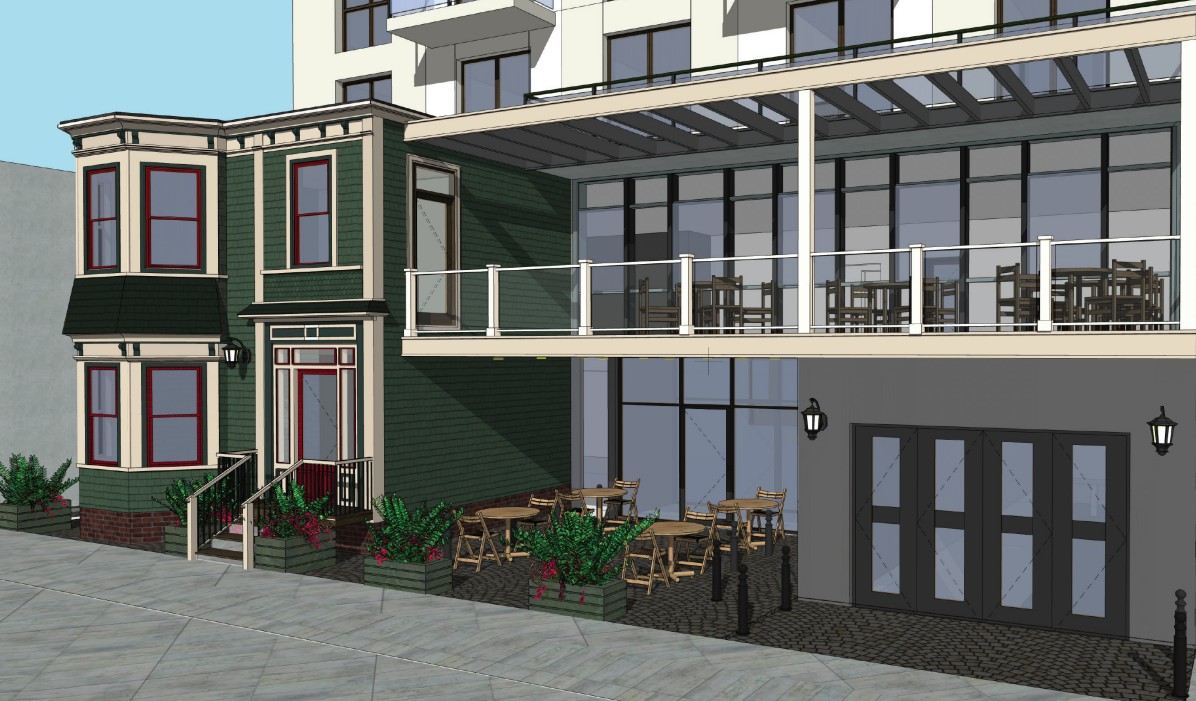
caption
This mock-up of the development from the heritage impact statement presented to the city’s heritage advisory committee in 2024 shows how the development would preserve the home’s original facade.That is, the front 54 per cent of the house will survive. The back section will be removed, and the new apartment building will attach to the original house. A new balcony will stretch out along the front of the building on the second floor.
All these changes were approved by the city’s heritage advisory committee, as in 2020, the Open Mic House, an early 1900s Halifax box-style house, was designated by the city as a heritage site.
When Grant Ruffinengo first considered developing the property, the city proposed using the Heritage Development Agreement, which he said allows them to continue the open mic house in its original shape and design.
But the house needs more than just a fresh coat of paint. Its foundation is described as “unsound” in a 2024 heritage impact statement presented to the heritage advisory committee, and will be replaced. The wood shingle siding will be replaced to be more historically accurate, the porch will be rebuilt and the house’s wooden detailing will be restored or replaced.
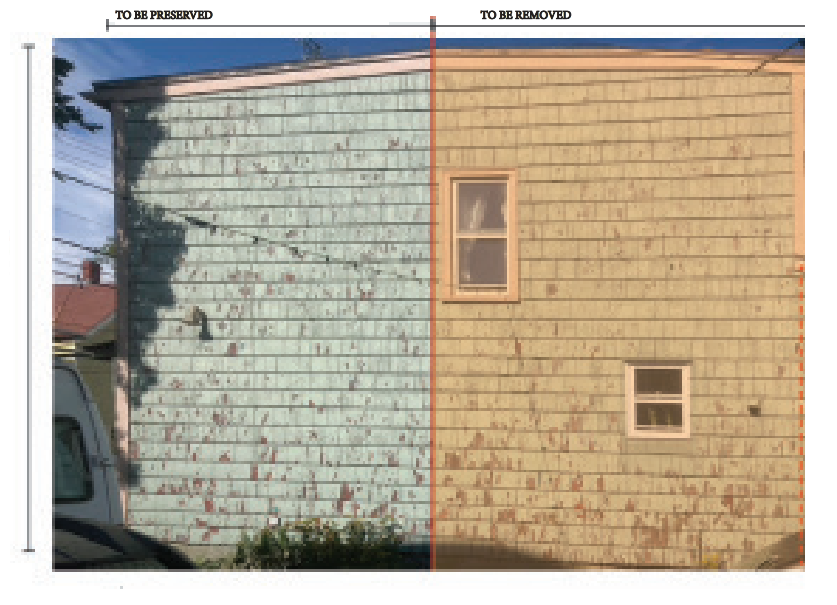
caption
This image, from a document presented to the city’s heritage advisory committee, demonstrates how much of the house will be removed.After some delays, Ruffinengo hopes construction will begin next spring, finishing in 2027. Due to the fire code, the house being attached to its new eight-storey friend means the house must be zoned commercial.
And while tenants can no longer live in the house, it will be revitalized as a music-based not-for-profit. Grant Ruffinengo has assembled a board including Fultz to brainstorm how the space will be run, and he says they’ll bring back open mic nights.
“This has been a practice in dealing with uncertainty,” said Ruffinengo. “The thing I have to convey as much as possible is it’s literally just me and my dad doing this. We’re not Killam, we’re not Crombie.”
The front half of the first two floors in the apartment building, including the front patio and balcony, will be a commercial space that Ruffinengo says could be a restaurant. His dream is for the Open Mic House to collaborate with a restaurant to host concerts, using the patio and balcony as a stage of sorts and “bring music to the streets.”
“I want the Open Mic House to continue … nurturing and building the artistic community. I want to see more venues like that happen,” he said. “I think they’re getting lost with affordability. And my hope is that this building, with the Open Mic House and in the non-profit that I’m working on included, can achieve all those things.”
Present tenants, past history
The tradition of musicians living in the house has continued. Quinn LeBlanc, 22, is one of three tenants currently living in the Open Mic House. He and his fellow tenant Felix Slander have a band called Manderville.
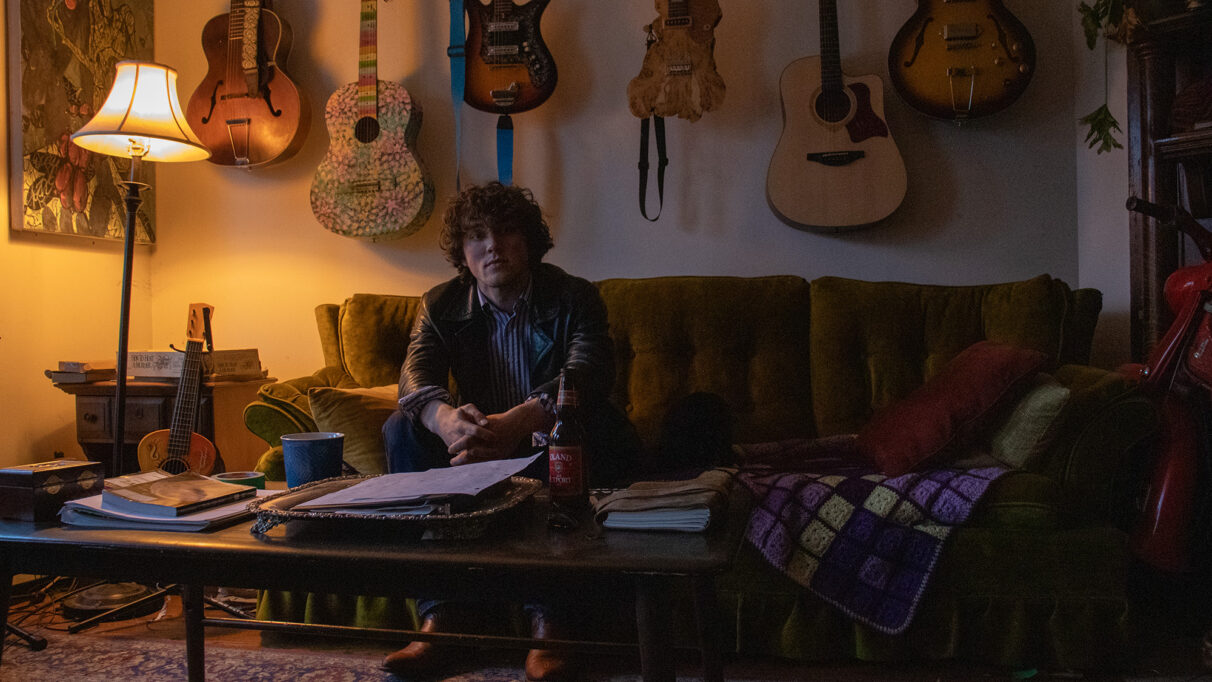
caption
Quinn LeBlanc sits on the couch in his home, the Open Mic House.On a day this November, LeBlanc sat in a dim living room, his acoustic guitar reverberating throughout the house. Above the couch, a myriad of unique guitars hang, and an old piano, which he said has been passed down through tenants, sits in the corner.
“Definitely needs a tune up but she still works,” said LeBlanc. “Be a shame if that was destroyed or thrown away.”
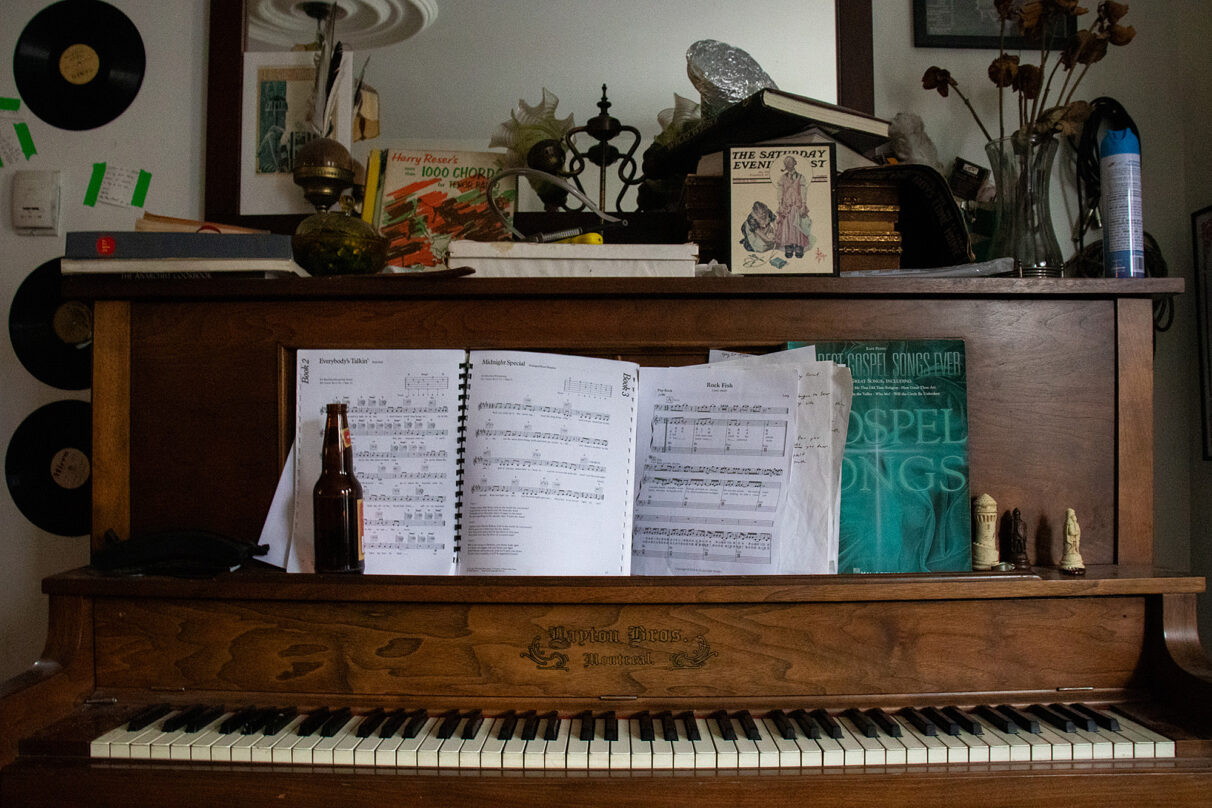
caption
This piano sits in the corner of the Open Mic House’s living room. Tenant Quinn LeBlanc doesn’t know where it came from, or what its future will hold with the impending development.The house is filled with curiosities, all left from past musicians.
“This place has many a tale to tell just by looking around, and I mean the basement for sure. It’s like a little lock box down there.”
LeBlanc said the basement has enough to “furnish at least a dozen houses.”
“There’s seven kick drums down there if you want to start a band with only a kick drum.”
The exterior of the house will be refurbished to restore its heritage. But LeBlanc is concerned about all the history inside the house.
“I don’t know if people are going to come back for them or what’s going to happen with them … They definitely deserve to find a home rather than sit in a landfill right away.”
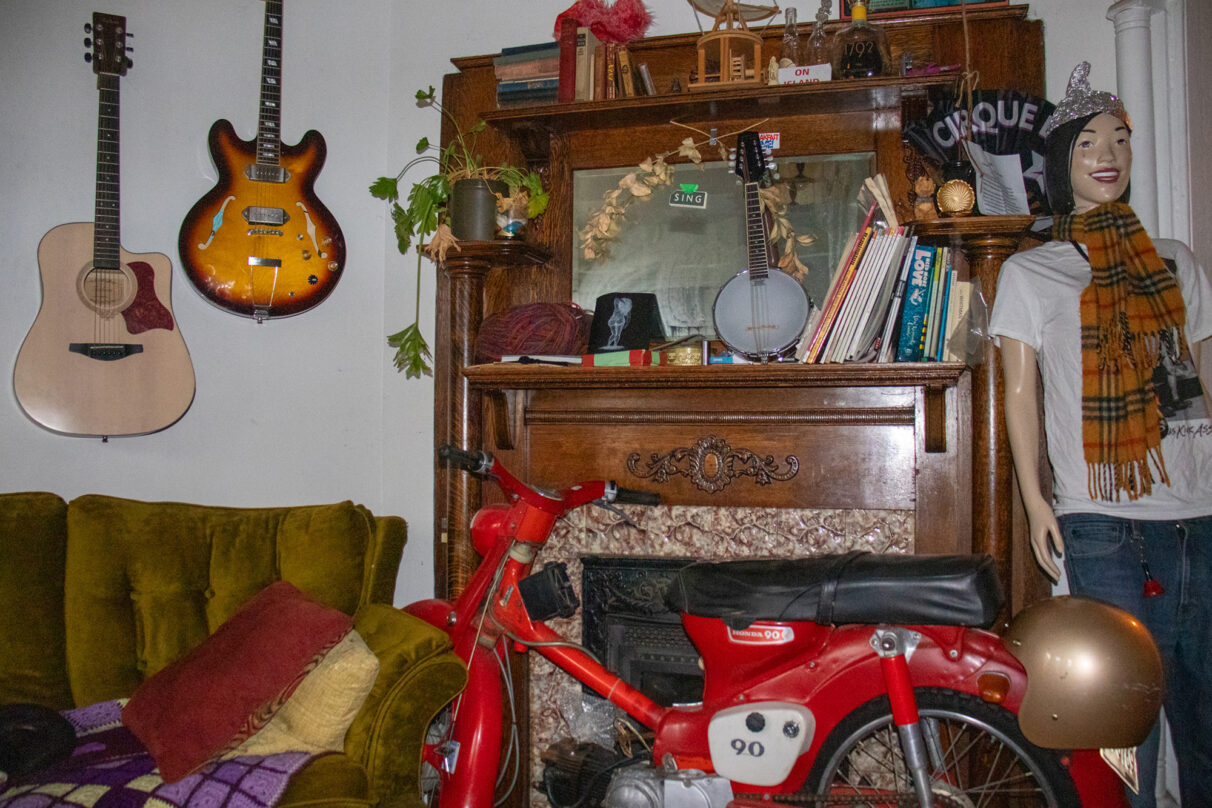
caption
The Open Mic House is decorated with peculiar objects left behind by tenants long-past.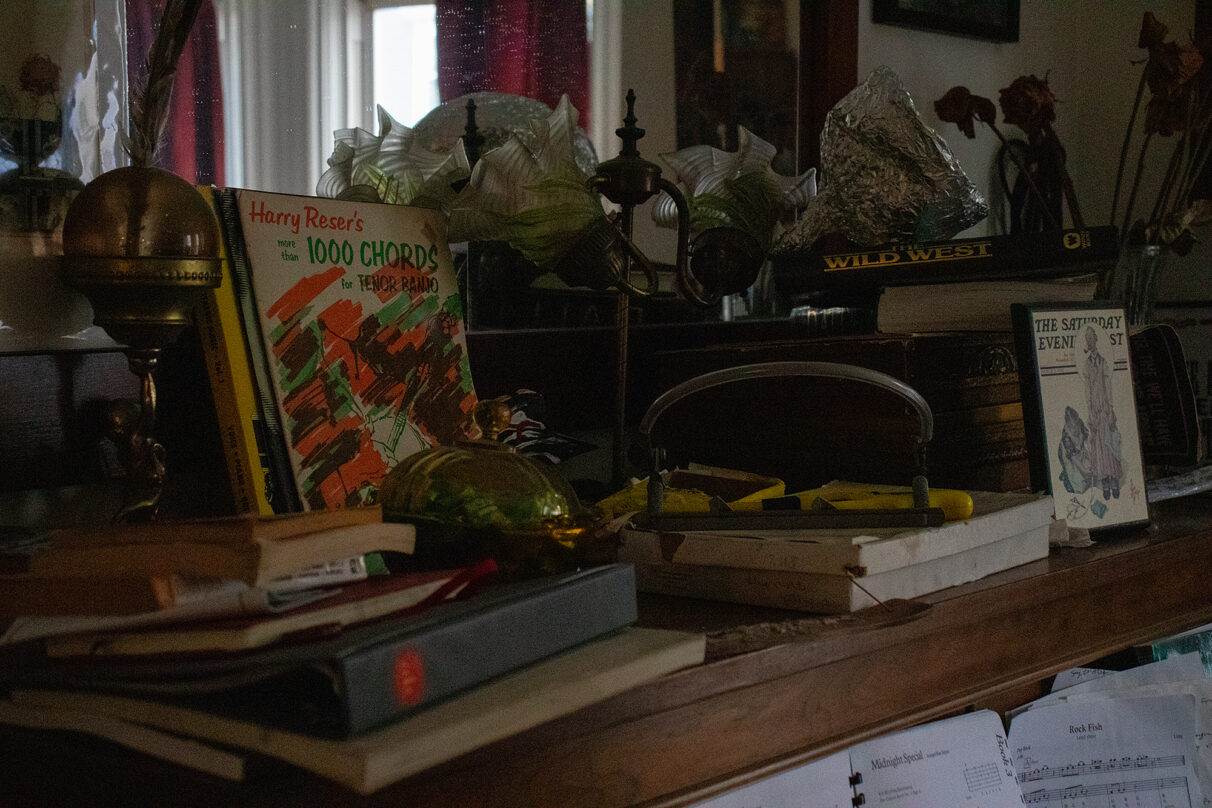
caption
Music books, among other objects, sit atop the piano in the Open Mic House.LeBlanc says he “can’t be too mad” about the development, as the Ruffinengos are trying to preserve the spirit of the Open Mic House. He prefers their plan over “some developer that’s never even seen this place sending in a demo crew to tear the whole place down” — but wishes he could keep living in the house.
Fultz also said there are difficulties in recreating the ethos of the Open Mic House.
“It wasn’t what anyone planned. It was just what happened. So like, try to keep that alive. You’re already losing something … But, you can still make something beautiful from that,” said Fultz.
Ruffinengo said the work is an investment. With Carlo Auto Service being demolished, the development is his dad’s retirement plan — and he doesn’t want it to change the fabric of the city.
“Don’t get me wrong. We’re still going to profit from the project, you know? But I want to see it be done in a way that not only we can benefit,” he said. “I’d like to think that we can do something cool for the street as well.”
About the author
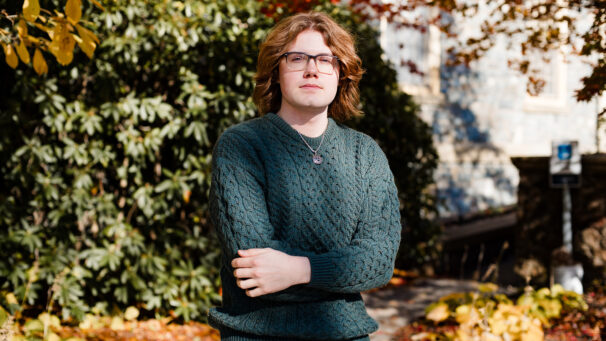
Owen Starling
Owen Starling is a reporter for The Signal and a fourth-year Bachelor of Journalism student at the University of King's College.
